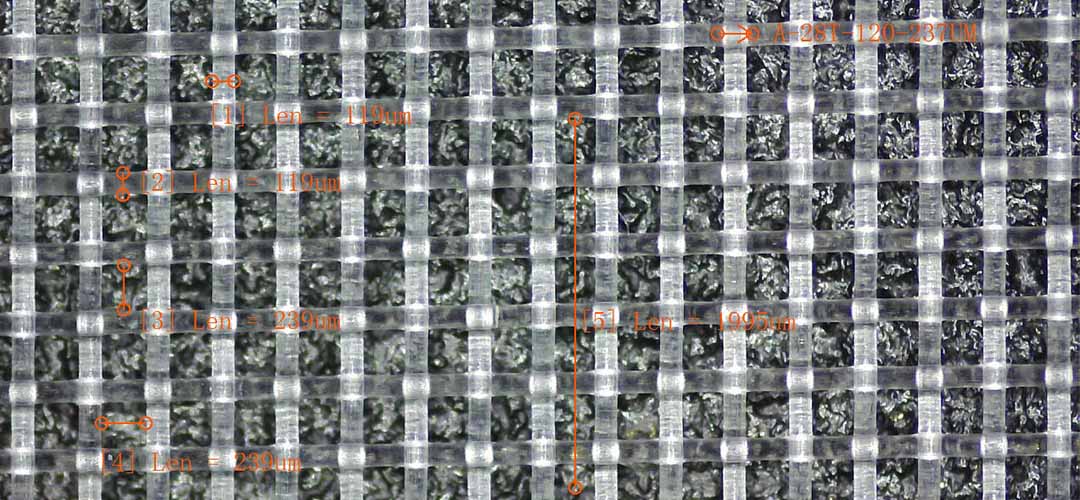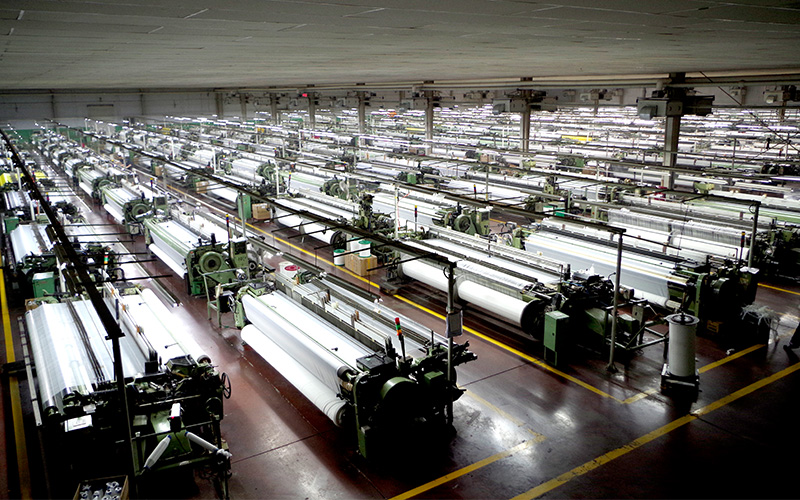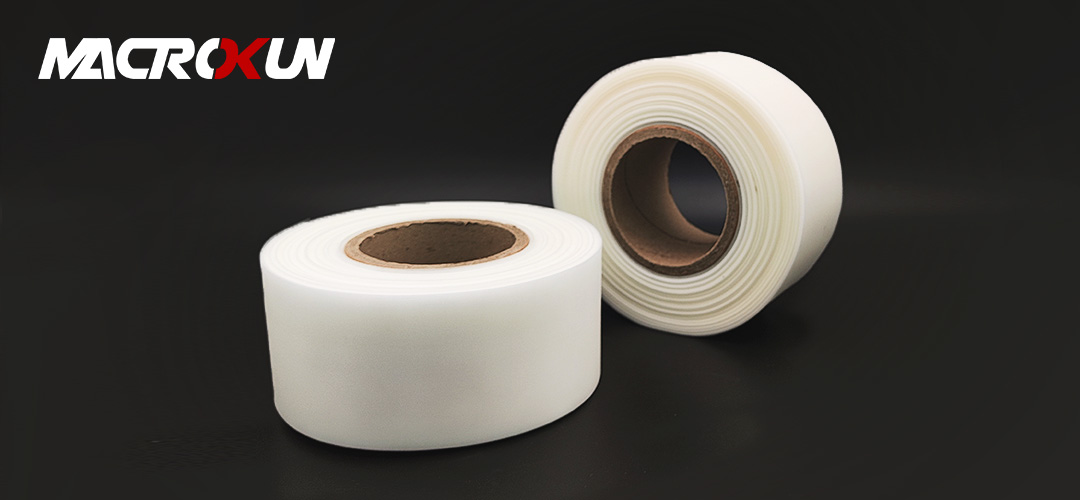Nylon netting has become a popular choice for industrial and DIY projects due to its versatility and durability. This type of netting is made from synthetic fibers that are woven together to create a strong and flexible material that can be used in a variety of applications. In industrial settings, nylon netting is often used for safety barriers, cargo containment, and debris protection. Its high tensile strength and resistance to abrasion make it an ideal choice for these types of applications.

One of the key benefits of using nylon netting in industrial projects is its ability to withstand harsh environmental conditions. Whether it’s extreme temperatures, high winds, or heavy rain, nylon netting is designed to hold up under the toughest conditions. This makes it a reliable choice for outdoor projects where other materials may not be able to withstand the elements.
Another advantage of nylon netting is its flexibility and ease of use. Unlike rigid materials like metal or wood, nylon netting can be easily manipulated and shaped to fit a variety of spaces. This makes it a versatile option for projects that require custom solutions or unique configurations. Additionally, nylon netting is lightweight and easy to transport, making it a practical choice for projects that require mobility or frequent repositioning.
In addition to its durability and flexibility, nylon netting is also a cost-effective option for industrial projects. Compared to other materials like steel or aluminum, nylon netting is more affordable and readily available. This makes it a practical choice for businesses looking to save money without sacrificing quality or performance. Additionally, nylon netting is easy to install and maintain, reducing the overall cost of ownership over time.
One of the key advantages of using nylon netting in industrial projects is its safety features. Nylon netting is designed to provide a protective barrier that can prevent accidents and injuries in the workplace. Whether it’s securing a construction site or containing debris on a job site, nylon netting can help create a safe and secure environment for workers and equipment. This can help businesses reduce the risk of accidents and liability issues, ultimately saving time and money in the long run.
Overall, nylon netting is a game-changer for industrial and DIY projects due to its versatility, durability, and cost-effectiveness. Whether it’s used for safety barriers, cargo containment, or debris protection, nylon netting is a reliable choice for businesses looking to improve efficiency and productivity. With its ability to withstand harsh environmental conditions, flexibility, and ease of use, nylon netting is a practical solution for a wide range of industrial applications. Businesses that choose nylon netting can benefit from increased safety, reduced costs, and improved performance, making it a smart investment for any project.
Nylon netting is a versatile material that has become increasingly popular in both industrial and do-it-yourself (DIY) projects. Its durability, flexibility, and affordability make it a game-changer for a wide range of applications. In this article, we will explore how nylon netting can improve DIY projects and provide some examples of how it can be used effectively.
One of the key benefits of nylon netting is its strength and durability. Unlike other materials, such as plastic or paper, nylon netting is designed to withstand heavy loads and resist tearing. This makes it an ideal choice for projects that require a sturdy and reliable material. Whether you are building a fence, creating a barrier, or constructing a support structure, nylon netting can provide the strength and stability you need.
In addition to its strength, nylon netting is also highly flexible. This flexibility allows it to conform to different shapes and sizes, making it easy to work with in a variety of projects. Whether you are creating a custom enclosure, designing a decorative element, or constructing a protective barrier, nylon netting can be easily manipulated to fit your specific needs. This versatility makes it a valuable tool for DIY enthusiasts looking to tackle a wide range of projects.
Another advantage of nylon netting is its affordability. Compared to other materials, such as metal or wood, nylon netting is a cost-effective option that can help you save money on your DIY projects. Whether you are working on a small-scale project or a larger construction job, nylon netting can provide a budget-friendly solution that meets your needs without breaking the bank.
One common use of nylon netting in DIY projects is for creating custom barriers or enclosures. Whether you are looking to keep pests out of your garden, protect your plants from harsh weather, or create a safe play area for your pets, nylon netting can provide a simple and effective solution. By using nylon netting to create a barrier, you can customize the size, shape, and design to fit your specific needs, ensuring that your project is both functional and aesthetically pleasing.
Nylon netting can also be used to create decorative elements in DIY projects. Whether you are looking to add a touch of elegance to your home or garden, or create a unique design feature for a special event, nylon netting can be a versatile and creative tool. By using nylon netting in combination with other materials, such as lights, flowers, or ribbons, you can create stunning visual effects that will impress your friends and family.
Overall, nylon netting is a game-changer for DIY projects. Its strength, flexibility, and affordability make it a valuable tool for a wide range of applications. Whether you are building a fence, creating a barrier, or designing a decorative element, nylon netting can help you achieve your goals with ease. So next time you are planning a DIY project, consider using nylon netting to take your project to the next level.
Nylon netting is a versatile material that has become a game-changer for industrial and do-it-yourself (DIY) projects across various industries. Its durability, flexibility, and affordability make it a popular choice for a wide range of applications. In this article, we will explore the different ways in which nylon netting is being used in industries such as agriculture, construction, sports, and more.
In the agriculture industry, nylon netting is commonly used for crop protection. Farmers use it to create barriers that keep pests and birds away from their crops, ensuring a higher yield and better quality produce. Nylon netting is also used in aquaculture to create cages and enclosures for fish farming, providing a safe and controlled environment for the fish to grow and thrive.
In the construction industry, nylon netting is used for safety purposes. Construction sites often use nylon netting as debris netting to prevent objects from falling and injuring workers or pedestrians below. It is also used as scaffold netting to provide a protective barrier around scaffolding, ensuring the safety of workers and preventing tools and materials from falling.
In the sports industry, nylon netting is commonly used for sports equipment such as soccer goals, baseball batting cages, and golf practice nets. Nylon netting is durable enough to withstand the impact of balls and other equipment, making it an ideal choice for sports facilities and training centers. It is also used in sports venues to create barriers and partitions for crowd control and safety.
In the automotive industry, nylon netting is used for car seat covers, cargo nets, and storage organizers. Nylon netting is lightweight, flexible, and easy to clean, making it a practical choice for protecting car seats and organizing storage space in vehicles. It is also used in car manufacturing to create custom storage solutions and accessories for different models and makes.
In the marine industry, nylon netting is used for fishing nets, boat covers, and safety barriers. Fishing nets made from nylon are strong and durable, making them ideal for catching fish in various water conditions. Nylon netting is also used to create boat covers that protect boats from the elements and keep them clean and dry when not in use. Safety barriers made from nylon netting are used on docks and piers to prevent accidents and ensure the safety of workers and visitors.
In conclusion, nylon netting is a versatile material that is revolutionizing industrial and DIY projects across various industries. Its durability, flexibility, and affordability make it a popular choice for a wide range of applications, from crop protection in agriculture to safety barriers in construction. As technology continues to advance, we can expect to see even more innovative uses for nylon netting in the future.
Nylon netting has become a popular choice for industrial and DIY projects due to its versatility and durability. Whether you are looking to create a barrier, protect your crops, or add a decorative touch to your project, nylon netting is a game-changer that can meet a variety of needs. However, with so many options available on the market, it can be overwhelming to choose the right nylon netting for your specific project. Here are some tips to help you make the best decision.


First and foremost, consider the size and strength of the nylon netting. The size of the netting will depend on the purpose of your project. If you are looking to create a barrier to keep out pests or birds, you will need a tighter weave. On the other hand, if you are looking to protect your crops from harsh weather conditions, a larger weave may be more suitable. Additionally, consider the strength of the netting. If you are working on a heavy-duty project, you will need a stronger netting that can withstand the weight of the materials it is supporting.
Next, consider the color of the nylon netting. While this may seem like a minor detail, the color of the netting can have a significant impact on the overall look of your project. If you are looking to create a seamless look, choose a netting color that blends in with the surroundings. On the other hand, if you want to make a statement, opt for a bold color that will stand out.
Another important factor to consider when choosing nylon netting is the UV resistance. If your project will be exposed to the sun for long periods of time, it is crucial to choose a netting that is UV resistant. This will help prevent the netting from fading or deteriorating over time, ensuring that your project remains looking its best for years to come.
Additionally, consider the installation process of the nylon netting. Some netting may require special tools or equipment for installation, while others can be easily installed with just a few simple steps. If you are working on a DIY project, it is important to choose netting that is easy to install to save time and effort.
Lastly, consider the cost of the nylon netting. While it may be tempting to choose the cheapest option available, it is important to remember that quality comes at a price. Investing in high-quality nylon netting will ensure that your project is durable and long-lasting, saving you money in the long run.
In conclusion, choosing the right nylon netting for your project is crucial to its success. By considering factors such as size, strength, color, UV resistance, installation process, and cost, you can make an informed decision that will meet your specific needs. With the versatility and durability of nylon netting, you can take your industrial or DIY project to the next level.
Pre: Comprehensive Guide to Nylon Mesh: Applications, Types, and Benefits
Next: Innovative Uses of Nylon Net in Aquaculture and Marine Applications

MACROKUN has established long-term and stable cooperative relations with many transportation companies such as China Post, DHL, FEDEX, USPS, UPS, etc. Of course, MACROKUN can also provide air and sea transportation. The powerful logistics system enables all MACROKUN'S Printing Mesh, Filter Mesh and Filter Bags and so on to be easily and efficiently transported to any place. For quotes and inquiries, please email our sales team.





